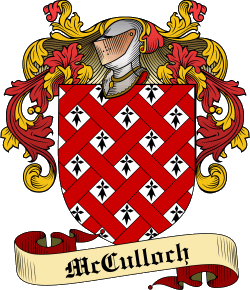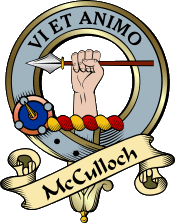|
|
Search

|
  Home Home
|
  Surname Surname
|
  First Name First Name
|
Popular Products

|
  Coat of Arms Coat of Arms
|
  Clan Badges Clan Badges
|
  Books & Gifts Books & Gifts
|
  Celtic Jewelry Celtic Jewelry
|
  Black Shirts Black Shirts
|
  CD Music CD Music
|
  Download Download
|
 Design Gallery
Design Gallery

|
  Irish Irish
|
  Flags Flags
|
  Celtic Celtic
|
  Tartans Tartans
|
  Scottish Scottish
|
  Claddagh Claddagh
|
  Surnames Surnames
|
  Highlander Highlander
|
  Celtic Radio Celtic Radio
|
Research

|
  History History
|
  Country Country
|
  Families Families
|
|
|
|
|
 We custom design and produce all of our products with industrial press technologies located at our Boston Massachusetts facilities! This industrial process results in superior manufacturing that will outlast even store bought products. Our base products are supplied from a major clothing wholesaler, so we can keep our prices low.
Orders made today are generally filled within 1-4 weeks depending on our current supply schedule. All products have a 30 day money back guarantee for defects in workmanship. Customer satisfaction is our number one priority!
|
|
Our Heraldry Database has thousands of Family histories to search. Visit Now!
Barry

Coat of Arms
Though not peculiar to Ireland, Barry is one of the names introduced into the country following the Anglo-Norman invasion—like Burke, Roche, Fitzgerald, etc.—which can now be regarded as essentially Irish. As early as 1179 Philip de Barn obtained extensive grants of land in Co. Cork (in the baronies of Barrymore, Orrery and Kinelea). Philip’s posterity prospered and multiplied, and the several bra.....
|
|
|
Heraldry Database: Mcculloch
McCulloch

|
|


Surname: McCulloch
Branch: McCulloch
Origins: Scottish
More Info: Scotland
|
|
Background: The family name McCulloch is one of the oldest in Galloway. It is of ancient Celtic origin and as such, the family can boast of a number of fanciful legends concerning its origin.
According to one, the family is descended from Ulgric, the grandson of Owen Gallvus, king of the Cludienses, or Strathclyde Britons. Ulgric was killed leading the gallant but wild and undisciplined Gallovidians (natives of Galloway) in the van of King David's army at the Battle of the Standards in 1138. Ulgric and Douvenald were vice-sovereigns of Galloway, the McCullochs, Mackuloghs, or Culaghs holding sway over the lands of Ulgric, and the McDowalls over the lands of Douvenald.
According to another account, the name McCulloch derives from a warrior of earlier lineage. Gwallawc or The Hawk of Battle, a Gallovidian chieftain of the sixth century, whose battles were celebrated by the ancient bards and is reputed, in local legend, to have be buried beneath the Standing Stones of Torhouse. His descendants thus took the name Mac-Gwallawc.
Another legend claims that the McCullochs took their name from a warrior who in the Crusades carried the device of a wild boar (which in Gaelic is cullach) on his shield and distinguished himself in the Holy Land with his gallantry and daring. On his return, William the Lion, in reward for Cullach's martial prowess, granted him the lands of Myrton, Glassertoun, Killasser and Auchtnaucht. The grateful soldier adopted as his patronymic, the word cullach, his nom-de-guerre. His son Godfrey, named after Godfrey de Bouillon, the First King of Jerusalem and Knight Templar, was naturally styled Mac-Cullach. Although this story is the most plausible, it is probable that the king was merely confirming those lands in the name of the McCullochs as they are mentioned as being a prominent family in the area some 400 years before.
|
 Motto: Motto: Vi Et Animo, By Strength and Courage. Arms: Ermine, fretty Gules. Crest: A hand throwing a dart Proper. View the Heraldry Dictionary for help.

This name, which in Scotland is found principally in Galloway and Wigtownshire, is of Celtic origin, but a number of alternative derivations has been proposed. The Irish Gaelic ‘MacCu’uladh’, meaning ‘son of the Hound of Ulster’, is anglicised as ‘Maccullagh’. In Scots Gaelic it is often rendered ‘Maccullaich’, and translated as ‘son of the boar’. They are, of course, very similar, and both are references to descriptive personal names suggesting fierce vigour. There is also a more northerly branch of the family around Oban, descendants of the Macdougalls, who may derive their name from ‘MacLulaich’, which may mean ‘son of the little calf’. This, again, is a descriptive personal name and its significance is obscure. The progenitor of the Argyllshire Mccullochs was said to be Lulach, son of Gilla Comgan, the Celtic Mormaer, or Earl, of Moray. The Galloway Mccullochs first come to prominence when Thomas Maculagh, ‘Counte de Wyggtone’, appears on the Ragman Roll of 1296, rendering homage to Edward I of England. He may also be the same Thomas Makhulagh who was appointed sheriff of Wigtown in 1305. Mccullochs witnessed various charters throughout the fourteenth century and Sir Patrick M’Owlache is noted as being restored to his lands in 1363, having previously been forfeited, apparently for allegiance to the English. The family also lost the office of sheriff of Wigtown, which passed to the family of Agnew of Lochnaw who still hold this honorary title to this day. day. In 1488 Quinton Agnew, sheriff of Wigtown, was ordered to restore to Archibald McCulloch twenty-eight oxen, eighty-eight sheep, four horses and other goods. It is recorded in 1507 that the Mcculloch chief, in revenge for a raid on the town of Kirkcudbright, ravaged the Isle of Man, then in possession of the Earl of Derby. The Mccullochs appear to have acquired the lands of Myretoun, which were constituted into a barony around 1566. They were raised to the rank of baronet in 1634, but this title came to an unfortunate end when Sir Godfrey Mcculloch was executed at Edinburgh in 1697 for the murder of William Gordon. The trial was of such celebrity that it is recorded in Pitcairn’s Criminal Trials of Scotland. The representation of the family passed to cousins, the Mccullochs of Ardwall, and there were other cadets. Major General Sir Andrew Mcculloch of Ardwall served in both the Boer War (1899–1902) and the First World War (1914–18), winning the Dist-inguished Service Order no less than three times. He was aide-de-camp to George V from 1931 to 1933.
Name Variations: McCulloch
.
References:One or more of the following publications has been referenced for this article.The General Armory; Sir Bernard Burke - 1842.
A Handbook of Mottoes; C.N. Elvin - 1860.
Scottish Clans and Tartans; Neil Grant - 2000.
Scottish Clan and Family Encyclopedia; George Way of Plean and Romilly Squire - 1994.
Scottish Clans and Tartans; Ian Grimble - 1973.
World Tartans; Iain Zaczek - 2001.
Clans and Families of Scotland; Alexander Fulton - 1991.




Sign-up for a Founders account and receive personalized
family heraldry service and much more!

Want to know more?
Click the Heart!
|
|
|



